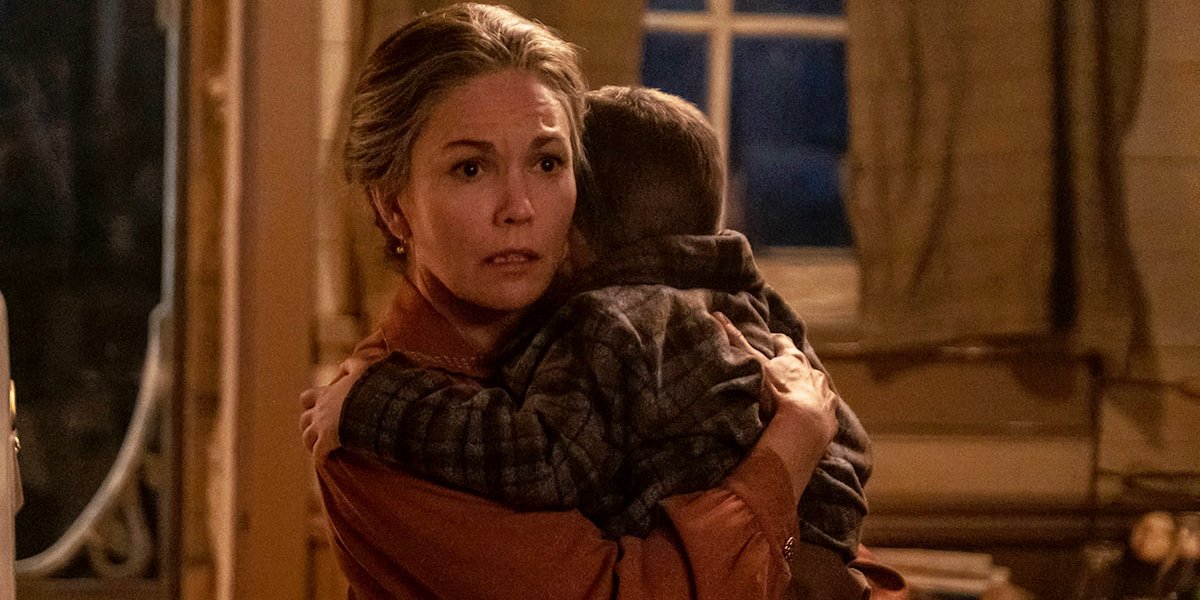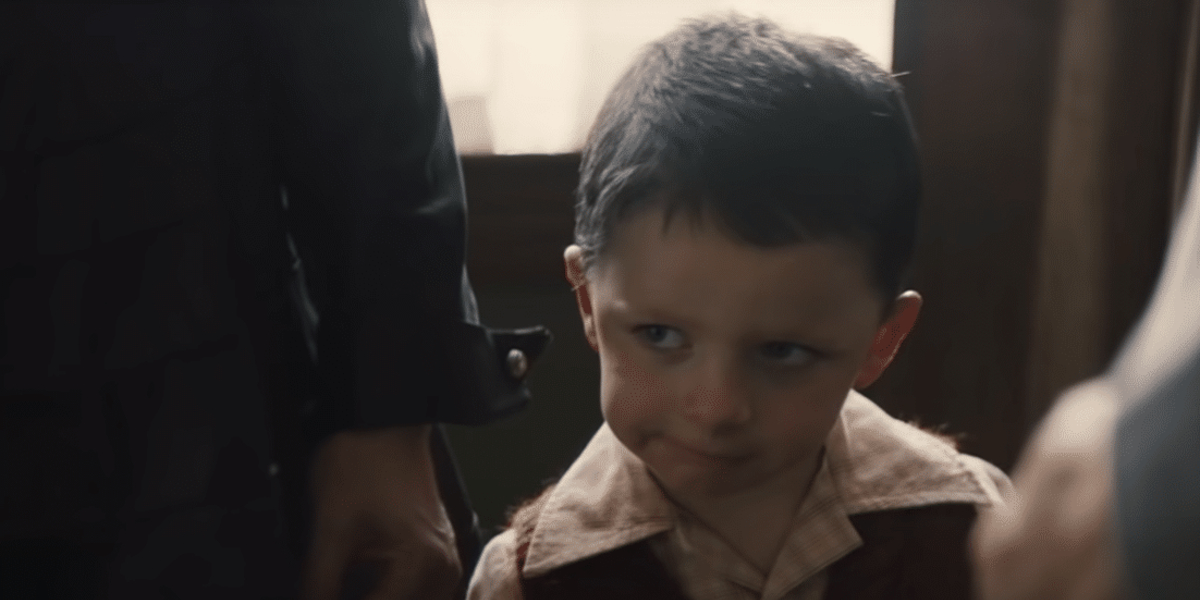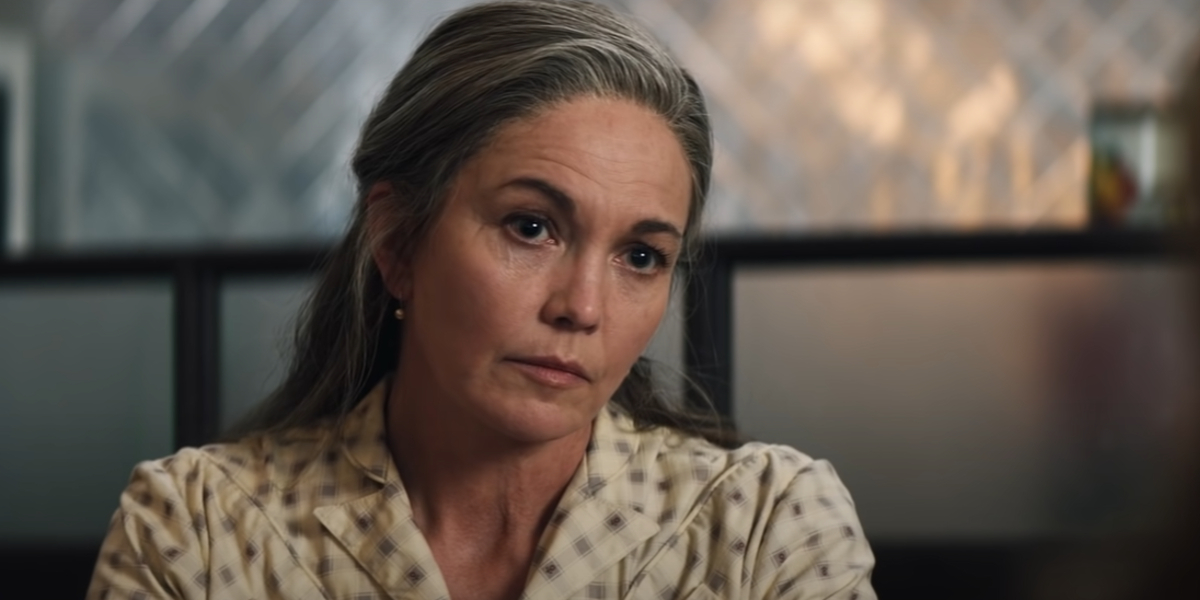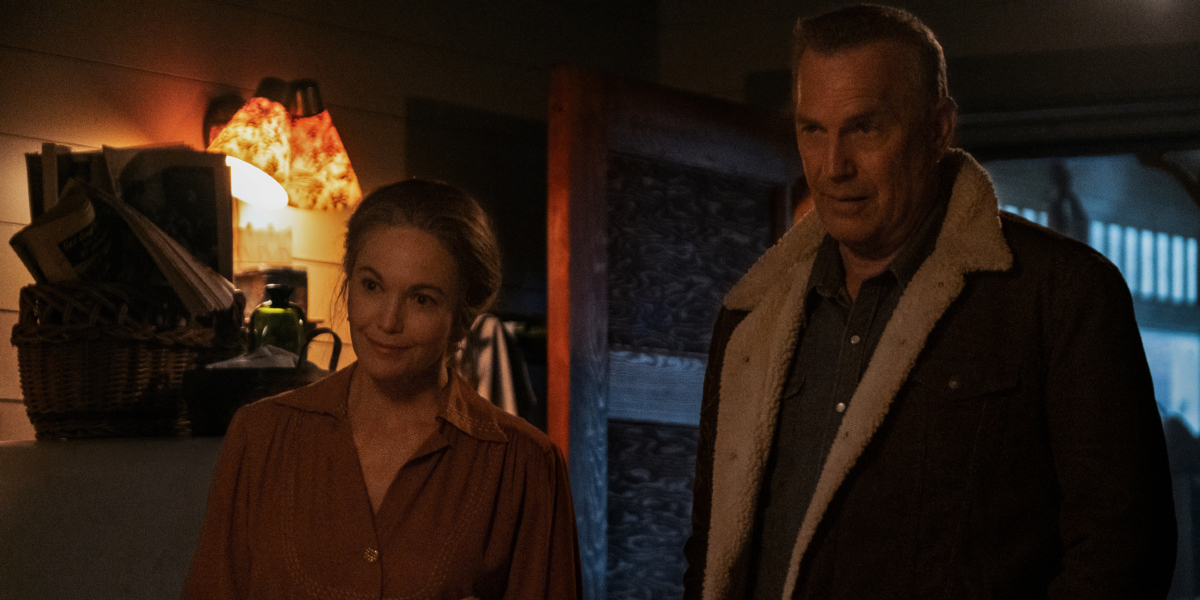Let Him Go Ending: Who Is The ‘Him’ In The Kevin Costner And Diane Lane Thriller

WARNING: The following article contains specific details about the ending to Let Him Go. Unless you have you seen the film or simply prefer to remain free from fear of SPOILERS, we recommend watching the movie before continuing
On the surface, Thomas Bezucha’s Let Him Go is a slow, methodical story about a couple's attempt to rescue their grandson from an unsavory family in the badlands of North Dakota. George and Margaret Blackeledge, played masterfully by Kevin Costner and Diane Lane, spend much of the adaptation of Larry Watson’s 2013 novel attempting to get over the death of their son years earlier while also coming to terms with the possibility of never seeing their grandson again, leading to an intense and satisfying Let Him Go ending that leaves a lot up to interpretation.
What is meaning of the title Let Him Go and to whom does it apply? Is it Jimmy Blackledge, the grandson ripped from his grandparents’ lives? Is it the Blackledges’ son, James? Or is it someone else entirely Below we will break down each of the different ways the title can be interpreted, what the filmmaker and author of the original novel have to say, as well as what goes down in the Let Him Go ending.

What Happens At The End Of Let Him Go
After nearly two hours of watching Margaret and George Blackledge deal with the death of their son, watch his widow and mother of their grandson start a new life with an abusive man who takes them away in the cover of night, and trying to go through proper channels to bring him home, the Let Him Go ending sees the movie follow a similar path that of Clint Eastwood’s Unforgiven.
After the Weboys, led by family matriarch Blanche (Lesley Manville) ambush the Blackledges and send them a very gruesome message (one that involves poor George losing a few fingers), the couple, who still have not gotten over the death of their son years earlier, bring the fight to the reclusive and cutthroat family.
First George sneaks onto the Weboy estate and attempts to take his grandson and the boy’s mother, Lorna (Kayli Carter) without causing a scene, but that plan quickly explodes just before the house is engulfed in flames just as Margaret arrives. By the end of it, however, everyone but Margaret, Jimmy, and Lorna are dead, George included.
As the movie ends and the surviving Blackledges drive away from the bloodshed behind them, Margaret holds onto her grandson just as she dreamt all along. But still, we’re left with the question: who is the ‘Him’ in Let Him Go?
Your Daily Blend of Entertainment News

Is Jimmy Blackledge The ‘Him’ In Let Him Go?
The most obvious answer to the question: Who is the ‘Him’ in Let Him Go is Jimmy Blackledge, the young grandson of Diane Lane and Kevin Costner’s characters, simply because the two are willing to put their lives on the line (which ends up happening for Costner’s George) throughout the movie. And since the central conflict of the movie revolves around the Blackledge’s attempting the rescue Jimmy, it makes sense for their son’s orphan to fit in that place.
There are multiple times throughout the movie, whether it be with conversations with North Dakota law enforcement or the Weboy family themselves, with George and Margaret Blackledge being explicitly told the boy is no longer theirs and that they should let him go before someone gets hurt, which ultimately happens.

Is James Blackledge The ‘Him’ In Let Him Go?
At the same time, however, there is a strong case that Let Him Go is actually about Diane Lane and Kevin Costner’s inability to move on from their son’s passing in the early goings of the movie. There are multiple times throughout the film where Margaret and George Blackledge have flashbacks of their son James as a young boy (which are absolutely heartbreaking).
You could argue that the death of James Blackledge is the catalyst to the central conflict of Let Him Go and that George and Margaret’s reluctance to fully accept that his passing is what is pushing them to rescue their grandson and bring them home. Having lost a son, they see young Jimmy as not so much as a replacement for his father, but a second chance at a simpler, happier life.

How Director Thomas Bezucha And Author Larry Watson Interpret The Title
Maybe Let Him Go writer/director Thomas Bezucha or Larry Watson, the author of the 2013 novel on which the film was based can help solve this problem and help shed some light on who the “Him” is in the title.
In a 2020 conversation with Screen Rant, Thomas Bezucha made it seem like the true meaning of the “Him” in Let Him Go could be left up to interpretation as to whether the Blackledges are to let go of their son or grandson, stating:
I think [the title] speaks to the theme of loss and squaring that loss. And I think for Margaret, Diane Lane, here character can’t reconcile herself to the loss of her son, and then the threat of losing her grandson. It also speaks to — be careful for what you wish, right? The price you’ll pay for what you want, can be more than you can imagine.
Everything the director said in that interview rings true: Margaret never fully got over the loss of her son and she didn’t want to lose her grandson but ultimately paid the price in losing her husband in the process. This also opens another possibility in that the title could have something to do with George in the sense that he died in order for their grandson to find safety.
Larry Watson touched on something similar in regards to the title during a 2020 interview with Bookstr when asked about the significance of his novel’s title and how it could be interpreted by offering a brief history on how it all came together:
There are so many places in the movie where you cay ‘Let him go’ about many different characters and situations. My original title for the novel was Bring Back the Boy, and you can see how that applies. But someone at the publishing house, I believe it was my editor, said a better title would be Let Him Go and I just knew instantly how right they were because it had so many different applications for the story.
Although the original title seemed to be more heavily favored towards Jimmy Blackledge opposed to his late father, Larry Watson appears to be more open to the idea of the title’s meaning more up to interpretation.
And so it appears that there is a case to be made for either Jimmy or James as to who is the "Him" in Let Him Go with evidence to support each argument. This honestly seems to be a situation where the title's meaning depends on who is watching the movie, so where do you fall? Make sure to leave your answer in the poll below.
This poll is no longer available.

Philip grew up in Louisiana (not New Orleans) before moving to St. Louis after graduating from Louisiana State University-Shreveport. When he's not writing about movies or television, Philip can be found being chased by his three kids, telling his dogs to stop barking at the mailman, or chatting about professional wrestling to his wife. Writing gigs with school newspapers, multiple daily newspapers, and other varied job experiences led him to this point where he actually gets to write about movies, shows, wrestling, and documentaries (which is a huge win in his eyes). If the stars properly align, he will talk about For Love Of The Game being the best baseball movie of all time.
